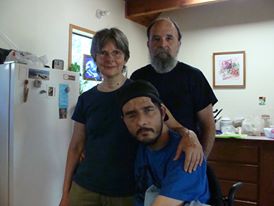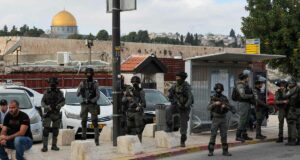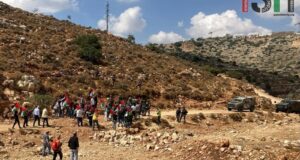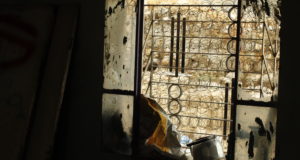10th July 2013 | Haaretz | Jerusalem
Court responding to petition charging that nobody questioned the Border Police soldier who fired the tear-gas canister that cracked Tristan Anderson’s skull in 2009.
Israel’s High Court of Justice on Wednesday ordered investigators to reopen their probe into the incident of a Border Police officer who shot a tear-gas canister at an American citizen in the West Bank in 2009, after the state acceded to a petition on the matter.
The court was responding to a petition purporting to uncover flaws in the West Bank district police’s probe of the incident, which occurred during a protest at the West Bank village of Na’alin.
The petition states that investigators never visited the village and questioned only a small number of the Border Police troops who were involved. It also claims that it is not clear whether the police officer who fired the tear gas canister was ever questioned.
The incident took place on March 13, 2009. After Friday prayers, residents of Na’alin began a protest march against construction of a section of the separation barrier on the village’s land. Also participating in the march were Israeli and foreign citizens – including Tristan Anderson, 38, an American citizen.
Anderson, a left-wing activist and photographer who has published reports of his travels throughout the world, was documenting the demonstration in Na’alin.
When the marchers reached the separation barrier, a clash developed with Israeli forces. Border Police troops used crowd-control methods, including tear-gas grenades.
As far as is known, Anderson was not among the demonstrators. But as he stood in the rear courtyard of the village mosque, observing what was happening, he was struck in the head by a tear-gas canister that smashed his skull, causing severe brain damage that affects him to this day, the petition claims.
The description of the event suggests that the canister was fired against regulations. Under the regulations in effect at the time – and today as well – security troops may not fire tear-gas canisters directly at demonstrators.
In an investigative report that ran in Haaretz’s weekend supplement after the incident, a Border Police soldier said that often, the Border Police troops “don’t fire the tear gas at the proper range” and that their training is “not serious”. Indeed, in recent years, several demonstrators have been struck by tear-gas canisters. Two of them, Bassem Ibrahim Abu Rahma of Bil’in and Mustafa Tamimi of Nebi Sallah, died as a result.
The West Bank district police investigated the events of that day. But the petition, which was submitted by Anderson’s parents and the non-governmental organization Yesh Din, states that the police questioned only the commander and three members of the Border Police company that operated in the village — even though the company commander testified explicitly that at least three teams, deployed in various locations, had been operating in the village that day.
This is a significant issue since the troops who were questioned had been deployed in a certain position which, according to various testimonies, was not the position from which Anderson was struck.
The Border Police troops’ testimony indicates that had struck a demonstrator – but from their description and the place where they were deployed, it seems the demonstrator they struck was not Anderson. It was someone else who was wounded that day.
According to the petition, that other injury of a demonstrator was never investigated by the police.
In addition, material in the investigation file indicates that the detectives of the West Bank district police never went to the village to examine the location first-hand.
In December 2009, the State Prosecutor’s Office announced that the investigation of the West Bank district police was over and the case would be closed. Two appeals subsequently filed did lead to some supplemental work on the case, but in February 2012, a decision was made once more to close it.
The current petition was submitted in response to that decision.
No comment has yet been received from the West Bank district police.
 International Solidarity Movement Nonviolence. Justice. Freedom.
International Solidarity Movement Nonviolence. Justice. Freedom.



